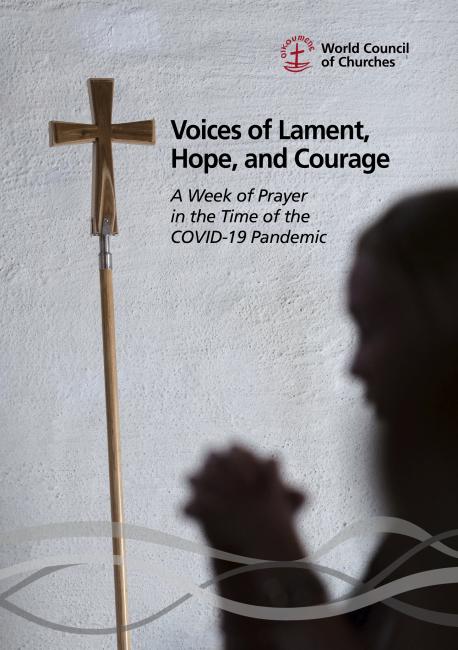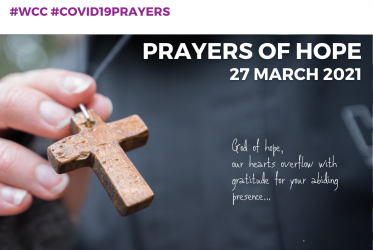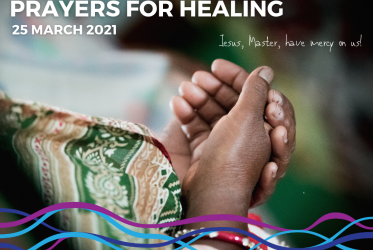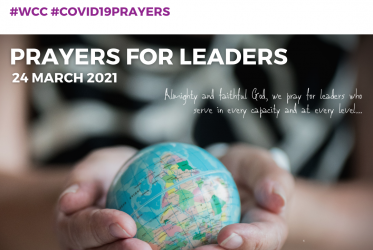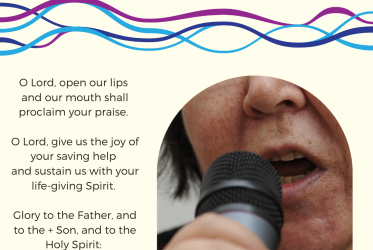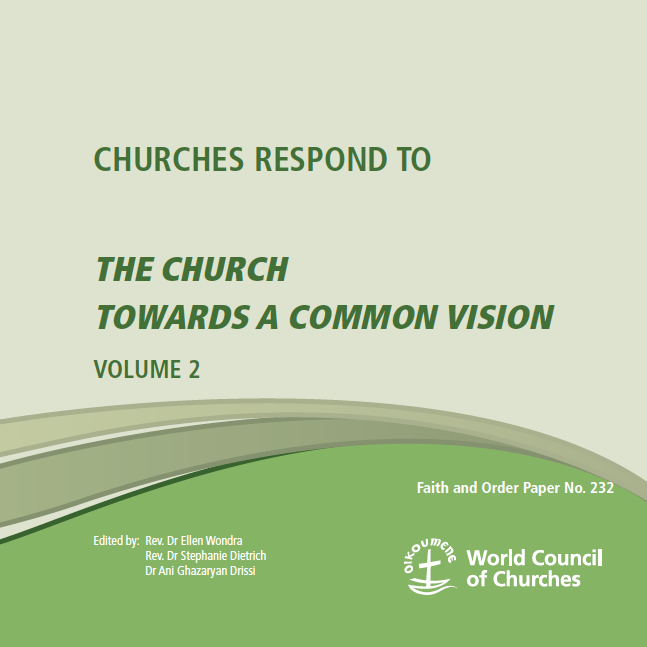Displaying 121 - 140 of 201
24 March 2021
Voices of Lament, Hope, and Courage
A Week of Prayer in the Time of the COVID-19 Pandemic
18 March 2021
Week of Prayer over COVID-19, Day 6: Prayers of Hope
17 March 2021
Week of Prayer over COVID-19, Day 1: Prayers of Lament
17 March 2021
Week of Prayer over COVID-19, Day 4: Prayers for Healing
17 March 2021
Week of Prayer over COVID-19, Day 3: Prayers for Leaders
17 March 2021
COVID-19 prayers from the WCC fellowship
17 March 2021
Morning Prayer for Monday, 15 March 2021
15 March 2021
Morning Prayer for Monday, 1 March 2021
01 March 2021
Churches Respond To The Church: Towards A Common Vision Volume I
Faith and Order Paper No. 231
23 February 2021
Churches Respond To the Church: Towards a Common Vision Volume II
Faith and Order Paper No. 232
23 February 2021
In pictures: Week of Prayer for Christian Unity
01 February 2021
Love and Witness
Proclaiming the Peace of the Lord Jesus Christ in a Religiously Plural World
18 January 2021

